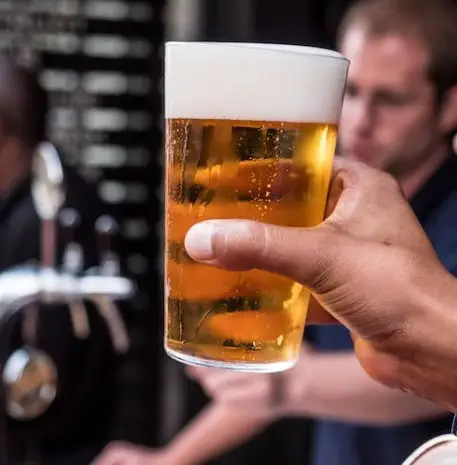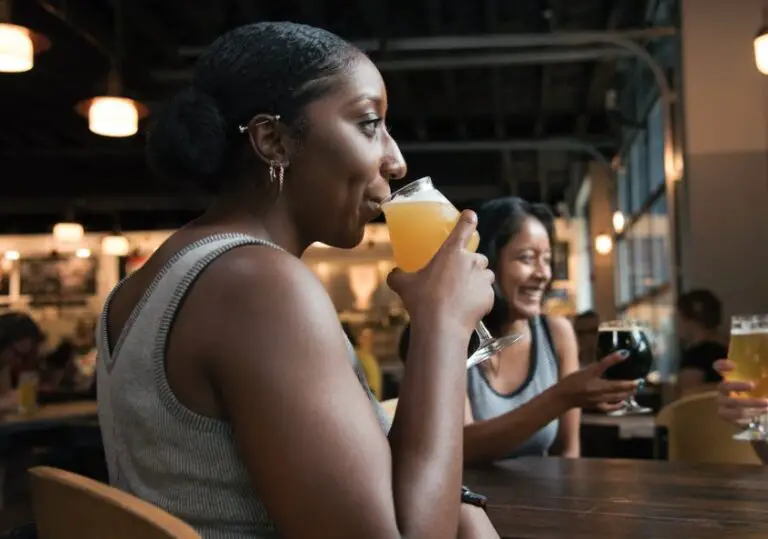Does Beer Have Carotene?
Carotene comes from carrots and from sweet potatoes… but does beer have carotene? Let’s take a look!
No, beer does not have carotene. Some beers may have trace amounts of carotene, but it’s so low that most sources suggest that it is below 1 microgram per 100 grams of beer. That means carotene is in trace amounts in beer.
While some ingredients used in brewing, such as malted barley and hops, may contribute trace amounts of carotene, the overall concentration is low compared to other dietary sources. The brewing process and filtration methods also tend to remove or reduce carotene content.
Follow us on Instagram!
Read on to learn more about carotene!
What Is Carotene?
Carotene is a type of pigment and antioxidant found in various fruits, vegetables, and plants. It belongs to the class of compounds known as carotenoids, which are responsible for the red, orange, and yellow colors in many fruits and vegetables. There are several types of carotenes, with alpha-carotene and beta-carotene being two prominent variants.

Carotene
Carotene is a fat-soluble compound that plays a crucial role in the photosynthetic process of plants. In the human body, carotene acts as a precursor to vitamin A, which is essential for maintaining healthy vision, skin, and the immune system. It also functions as an antioxidant, helping to neutralize harmful free radicals that can damage cells and contribute to various health conditions.
Alpha-Carotene
Alpha-carotene is a type of carotene that, like beta-carotene, can be converted into vitamin A in the body. It is found in various fruits and vegetables, such as carrots, sweet potatoes, and dark leafy greens. Alpha-carotene also exhibits antioxidant properties, contributing to the body’s defense against oxidative stress and inflammation.
Beta-Carotene
Beta-carotene is perhaps the most well-known carotene and is abundantly present in carrots, sweet potatoes, spinach, and other colorful vegetables. In the body, beta-carotene is converted into vitamin A, which is crucial for maintaining healthy skin, vision, and immune function. Beta-carotene is a potent antioxidant that helps protect cells from damage caused by free radicals.
Carotenes, including alpha-carotene and beta-carotene, are considered provitamins because they can be transformed into active forms of vitamin A in the body. Vitamin A, in turn, is vital for various physiological functions, including vision, immune system support, and skin health. Consuming a balanced diet rich in fruits and vegetables containing carotenes is essential for ensuring an adequate intake of vitamin A and maintaining overall health.

Is There Carotene in Beer?
In short, beer has VERY low amounts of carotene. Basically beer does not have carotene, but let’s go with the fact that there is a minute amount of it…
The primary reason for the limited carotene content in beer is the brewing process and the ingredients used.
Ingredients: While beer is typically made from ingredients like malted barley, hops, water, and yeast, these components contain only minimal amounts of carotene compared to other sources like fruits and vegetables.
Brewing Process: The brewing process involves malting, mashing, boiling, fermenting, and filtering. During these stages, many of the naturally occurring compounds, including carotenes, can be lost or reduced. Filtration is particularly effective at removing particles, including those containing carotene.
Malt and Hops: Malted barley, a common ingredient in beer, contains small amounts of carotene, but the concentrations are not as high as in certain vegetables. Hops, another key ingredient, contribute bitterness and aroma but generally contain minimal carotene.
Fermentation: The yeast used in the fermentation process can also influence the carotene content. While some studies suggest that yeast may contribute to carotene levels, the overall impact is relatively low.

Why Do Some People Assume There Is Carotene in Beer?
While there may not be specific myths about carotene in beer, there could be misconceptions or misunderstandings that some people may have regarding the nutritional content of beer. Here are a few potential areas of confusion:
Misunderstanding Health Benefits: Some individuals might believe that beer is a significant source of carotene and, therefore, assume it provides substantial health benefits associated with this antioxidant. This misunderstanding could lead people to overestimate the nutritional value of beer in terms of carotene intake.
Associating Beer with Vitamins: People may be curious about the presence of carotene in beer due to a general association between vitamins and certain beverages. While beer contains some vitamins and minerals, it is not a primary source for essential nutrients, and relying on it as such may lead to nutritional imbalances.
Assuming Carotene Boosts Beer Quality: There could be a misconception that higher carotene levels contribute to the quality or flavor of beer. In reality, the taste and characteristics of beer are influenced by a complex interplay of ingredients, brewing methods, and fermentation processes.
What About Beer’s Color and Carotene? Is There A Link?
The color of beer is influenced by various factors, and carotene can play a role, albeit indirectly. Carotene itself is a pigment responsible for the yellow and orange hues in many fruits and vegetables, but its impact on beer color is generally limited. Instead, other compounds contribute more significantly to the color of beer.
Malt Color: The color of beer is often influenced by the type of malt used in brewing. Malted barley comes in various forms, such as pale malt, caramel malt, and chocolate malt, each contributing different colors to the final product. The malting process involves heating and drying the barley, which can create a range of colors in the malt, from pale gold to deep brown.
Caramelization: During the brewing process, sugars in the malt undergo caramelization during the boil, contributing to the beer’s color. The longer the boil, the more the sugars caramelize, resulting in a darker beer.
Specialty Ingredients: Some brewers use specialty ingredients, such as dark grains or adjuncts like coffee or chocolate, to impart specific colors and flavors to the beer.
Wrapping It Up
In conclusion, beer has only trace amounts of carotene, and it is not a significant source of this important antioxidant. The brewing process and filtration methods generally lead to very, very low carotene levels in the final product. If you want to have more carotene, try to eat more carrots and sweat potatoes.

I am a young architect with a passion that goes beyond blueprints… it’s beer! undertherosebrewing.com is more than just a blog, it’s a manifestation of my lifelong dream to explore, read, and learn everything about beer. Join the blog on this unfiltered and genuine adventure into the heart of beer culture. Cheers!






